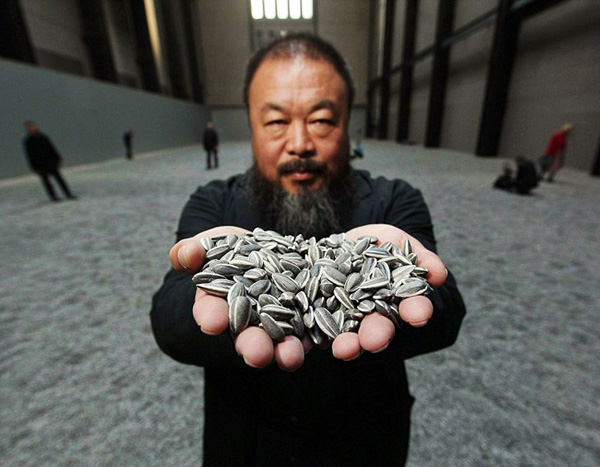
Ai Weiwei: Never Sorry
Written by Alison Klayman
Directed by Alison Klayman
USA, 2012
A good documentary requires a good subject but can sometimes be overwhelmed by a great one. Such is the blessing and problem facing Ai Weiwei: Never Sorry. The film follows Weiwei, an acclaimed counter-cultural Chinese artist, as well known for his activism as he is for his photographic and installation art. First-time film maker Alison Klayman met the iconic artist four years ago and began filming and photographing him as he embarked on a series of high-profile artistic critiques of the Chinese Government. During her time with him, Weiwei creates a number of powerful artistic exposes of CCP policy, including an incendiary investigative piece into the true death toll of the 2008 earthquake in Sichuan. He is assaulted, followed and kidnapped by police, works on building the Olympic stadium in Beijing and goes from being famous in artistic circles to one of the world’s most well-known artists and activists.
Weiwei is a magnetic figure and an ideal documentary subject. He is funny, candid, insightful and utterly committed to disseminating his thoughts and opinions. His peers speak of him with enormous reverence and commend him as much for not being an “artist in the system” as they do for his art. Weiwei refers to himself as a chess player with an opponent; a highly reactionary position for any artist to admit and one that truly marks him at this point in his career as an activist first and foremost. He is such a powerful figure that to properly document and dissect him as a subject requires great skill on the part of the film maker.
While Klayman does an admirable job of putting together years of footage, photographs and a well-executed back-story section using photos and narration, she appears out of breath from the effort. Consequently we are presented with little to nothing in the way of personal or artistic criticism, nor do we delve into the artist with any real insight beyond that which he provides. It appears at times that the force of character Weiwei exhibits overwhelms the film and leaves us with a documentary directed by its subject rather than an examination of him. That being said, Klayman demonstrates remarkable skill for having being presented with such a monumental and important task in her first feature project. She creates a clear and well-paced narrative out of what must have been a staggering amount of footage and much of the images filmed of Weiwei’s exhibits could easily become iconic representations of his work. More than anything, she has given the world a cohesive and accessible introduction to one of the twenty-first century’s most important figures.
Michael Waldman
Visit the Hot Docs festival site


